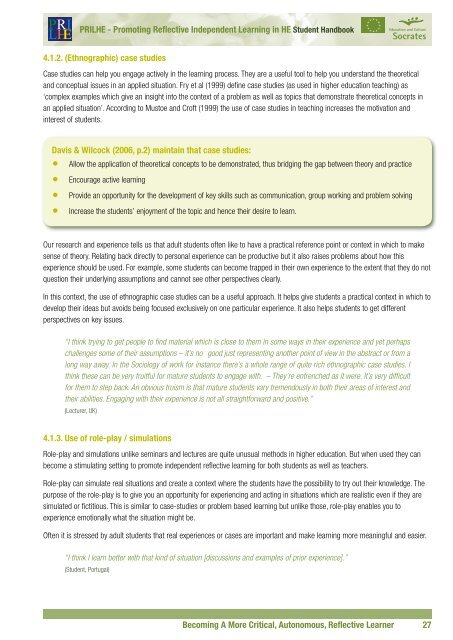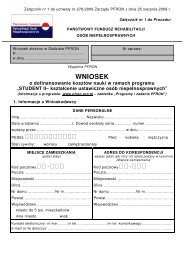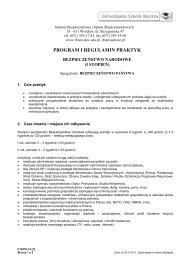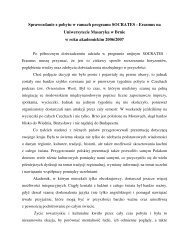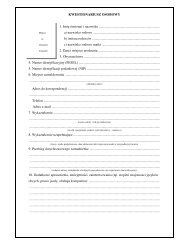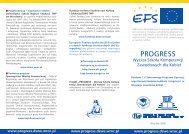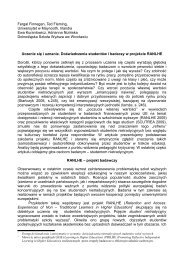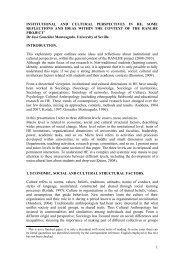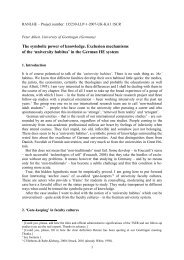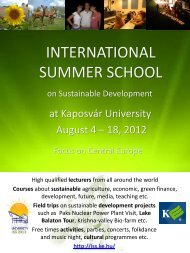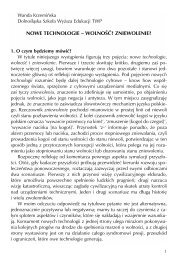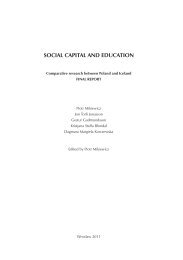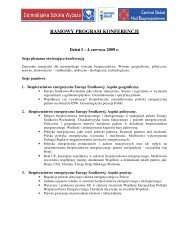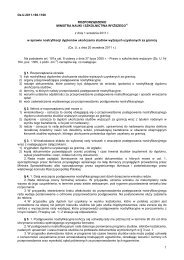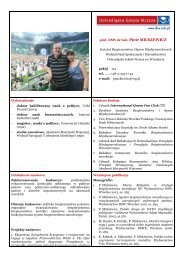Becoming A More Critical, Autonomous, Reflective Learner
Becoming A More Critical, Autonomous, Reflective Learner
Becoming A More Critical, Autonomous, Reflective Learner
Create successful ePaper yourself
Turn your PDF publications into a flip-book with our unique Google optimized e-Paper software.
PRILHE - Promoting <strong>Reflective</strong> Independent Learning in HE Student Handbook4.1.2. (Ethnographic) case studiesCase studies can help you engage actively in the learning process. They are a useful tool to help you understand the theoreticaland conceptual issues in an applied situation. Fry et al (1999) define case studies (as used in higher education teaching) as‘complex examples which give an insight into the context of a problem as well as topics that demonstrate theoretical concepts inan applied situation’. According to Mustoe and Croft (1999) the use of case studies in teaching increases the motivation andinterest of students.Davis & Wilcock (2006, p.2) maintain that case studies:•• Encourage active learning••Allow the application of theoretical concepts to be demonstrated, thus bridging the gap between theory and practiceProvide an opportunity for the development of key skills such as communication, group working and problem solvingIncrease the students’ enjoyment of the topic and hence their desire to learn.Our research and experience tells us that adult students often like to have a practical reference point or context in which to makesense of theory. Relating back directly to personal experience can be productive but it also raises problems about how thisexperience should be used. For example, some students can become trapped in their own experience to the extent that they do notquestion their underlying assumptions and cannot see other perspectives clearly.In this context, the use of ethnographic case studies can be a useful approach. It helps give students a practical context in which todevelop their ideas but avoids being focused exclusively on one particular experience. It also helps students to get differentperspectives on key issues.“I think trying to get people to find material which is close to them in some ways in their experience and yet perhapschallenges some of their assumptions – it’s no good just representing another point of view in the abstract or from along way away. In the Sociology of work for instance there’s a whole range of quite rich ethnographic case studies. Ithink these can be very fruitful for mature students to engage with. – They’re entrenched as it were. It’s very difficultfor them to step back. An obvious truism is that mature students vary tremendously in both their areas of interest andtheir abilities. Engaging with their experience is not all straightforward and positive.”(Lecturer, UK)4.1.3. Use of role-play / simulationsRole-play and simulations unlike seminars and lectures are quite unusual methods in higher education. But when used they canbecome a stimulating setting to promote independent reflective learning for both students as well as teachers.Role-play can simulate real situations and create a context where the students have the possibility to try out their knowledge. Thepurpose of the role-play is to give you an opportunity for experiencing and acting in situations which are realistic even if they aresimulated or fictitious. This is similar to case-studies or problem based learning but unlike those, role-play enables you toexperience emotionally what the situation might be.Often it is stressed by adult students that real experiences or cases are important and make learning more meaningful and easier.“I think I learn better with that kind of situation [discussions and examples of prior experience].”(Student, Portugal)<strong>Becoming</strong> A <strong>More</strong> <strong>Critical</strong>, <strong>Autonomous</strong>, <strong>Reflective</strong> <strong>Learner</strong> 27


